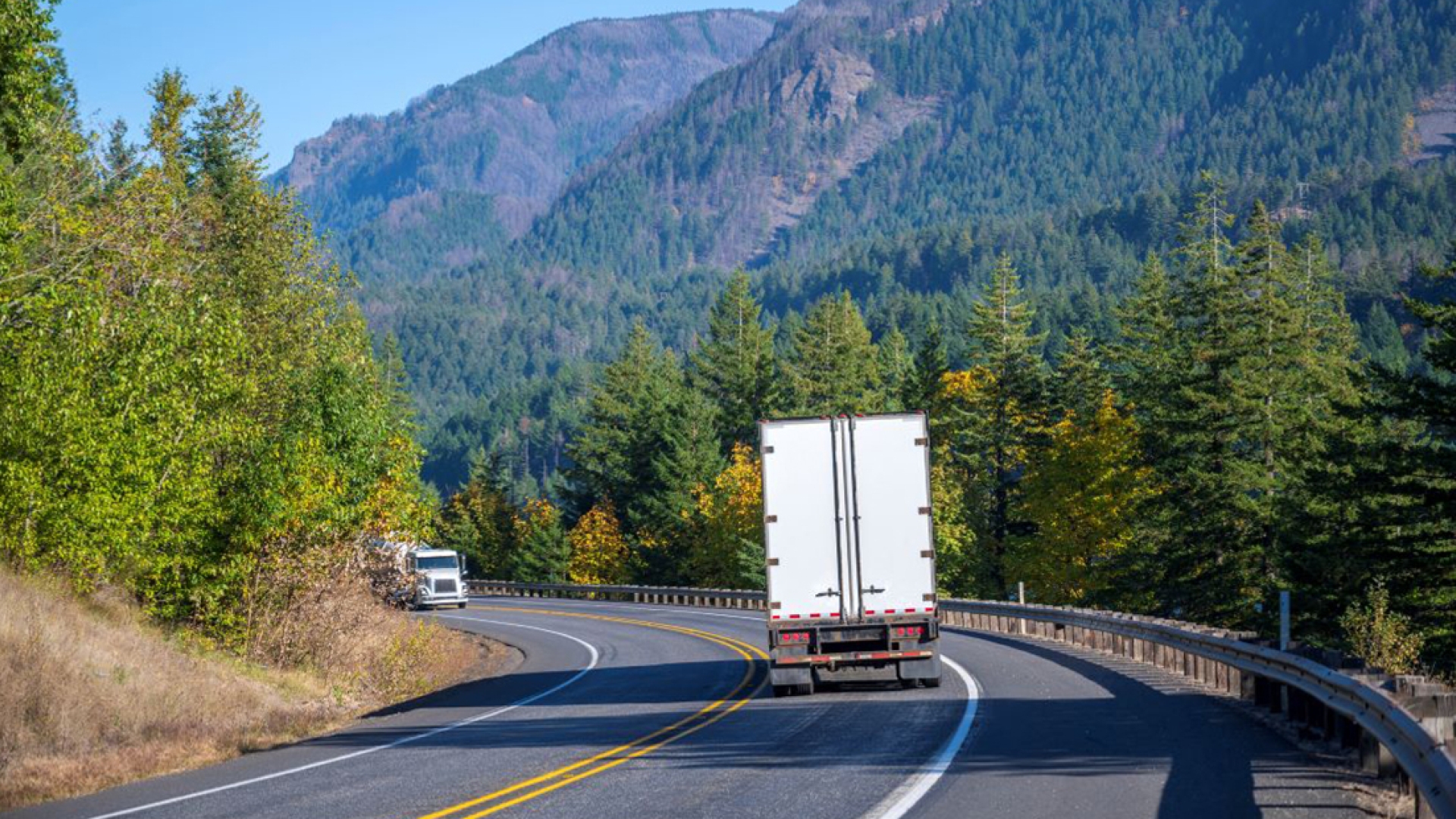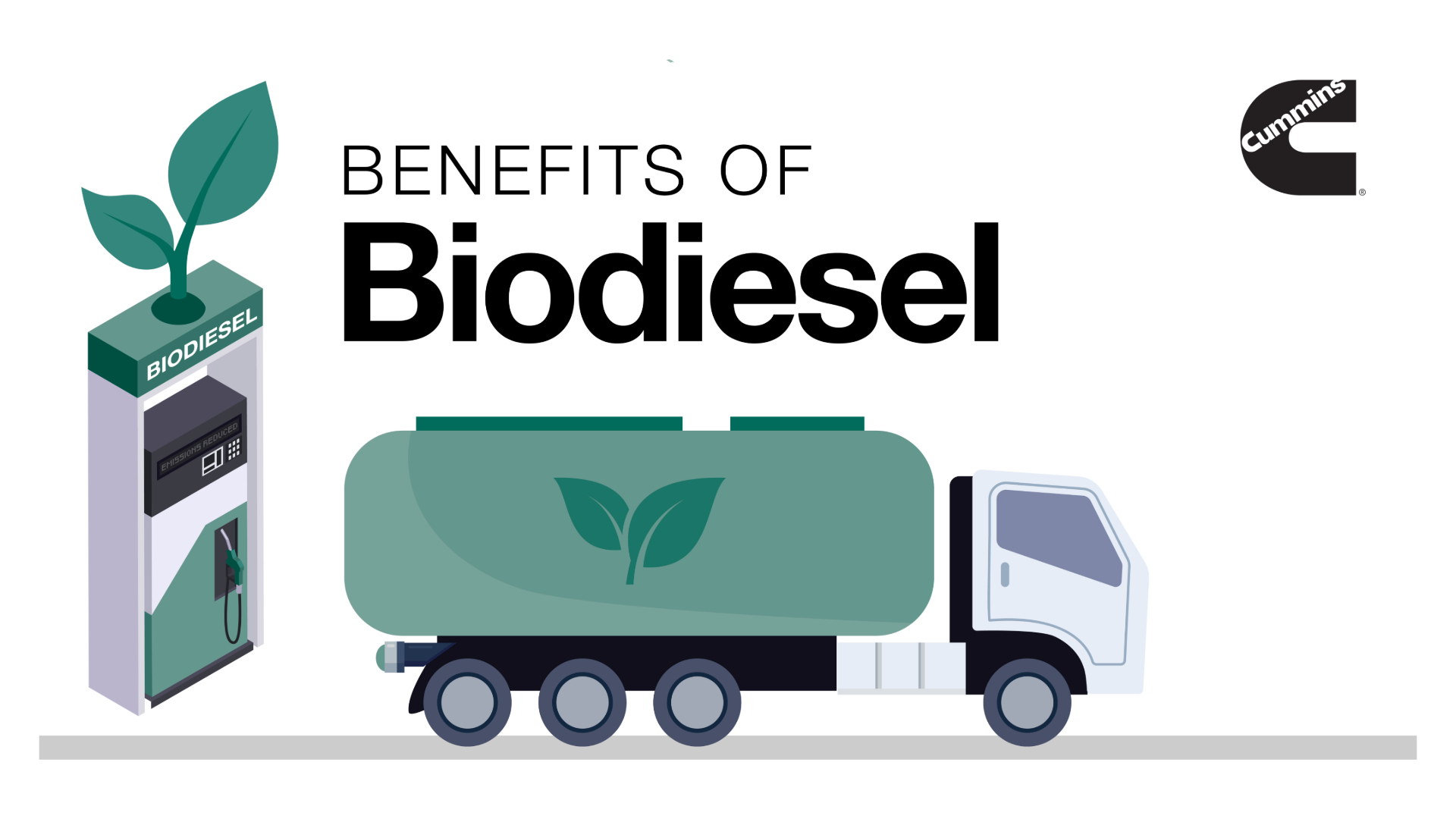Benefits of biodiesel
By Cummins Inc., Global Power Technology Leader

The transportation industry is at a pivotal stage in the energy transition. While some early adopters are eager to integrate new, emerging technologies, others are curious about low-carbon alternative fuels that are readily available to integrate into existing infrastructure.
One of the simplest ways fleets can lower their carbon dioxide (CO2) and greenhouse gas emissions is by integrating biodiesel blends. Biodiesel can lower emissions, reduce operating costs, improve fleet performance and integrate easily with existing vehicle fleets.

Environmental and emissions benefits
Switching to biodiesel allows customers to reduce their environmental footprint immediately without the need for extensive modifications to their existing diesel engine fleets. Biodiesel significantly lowers well-to-wheel emissions - the total emissions from fuel production to its use in vehicles. These reductions can significantly reduce customers' Scope 1 emissions, which is crucial for fleets and businesses aiming to lower their overall carbon footprint and meet increasingly stringent environmental regulations.
Biodiesel also has a lower carbon intensity than petroleum diesel. Carbon intensity measures the amount of carbon dioxide (CO2) equivalent emitted per unit of energy produced and reflects the fuel’s overall impact on the atmosphere. Research from the National Renewable Energy Laboratory indicates that switching to a biodiesel blend like B20 (20% biodiesel) can reduce carbon dioxide emissions by 15%.[1]
All of these benefits are directly linked to how biodiesel is produced. It's derived from a mix of feedstocks including vegetable oils, animal fats, and used cooking oil. The CO2 emitted during combustion is offset by the CO2 captured during the growth of these feedstocks. This cycle significantly reduces the life cycle emissions of biodiesel, making it a more sustainable choice for powering businesses and fleets.
Beyond its ability to reduce greenhouse gas emissions, biodiesel also has a lower sulfur content compared to traditional diesel fuels.
Cost benefits
Biodiesel blends don’t require any vehicle or infrastructure upgrades.
As a drop-in fuel, biodiesel provides an opportunity for operators of Cummins-powered vehicles and equipment to immediately reduce their emissions without the need for substantial upfront investment or modifications to their existing fleet.
A key feature of biodiesel is its versatility and compatibility with existing diesel engines. It can be used in its pure form (B100) or blended with petroleum diesel at any concentration, with common blends including B5 (5% biodiesel, 95% petroleum diesel) and B20 (20% biodiesel, 80% petroleum diesel). This flexibility allows customers to make an easy transition to cleaner biofuels, leveraging the growing availability of biodiesel in the existing fuel distribution infrastructure. Many Cummins engines are approved to run up to B20 check engine service literature for compatible fuels.
Using biodiesel or biodiesel blends, Cummins customers can continue to rely on the performance and reliability of their engines while contributing to a reduction in greenhouse gas emissions and achieving more sustainable operations.
Performance and emissions benefits
At Cummins, our commitment to sustainability and innovation is coupled with a focus on maintaining the high performance, reliability and power that our customers have come to expect. And here too, the performance benefits of biodiesel, when paired with Cummins diesel engines, is significant.
One of the key performance metrics in diesel fuel is the cetane number. Cetane rating measures fuel quality. It indicates how well the fuel will burn within the engine cylinder. The higher the cetane number, the shorter the ignition time, meaning the better combustion. The scale for measuring cetane ranges from 0-100.
Today's diesel engines require fuel with a cetane number ranging from 40-45. Biodiesel, however, requires a minimum cetane number of 45, ultimately indicating a shorter ignition time and strong performance. Depending on the biodiesel blend, the cetane number could range anywhere from 45-55.
Criterial pollutants such as particulate matter, hydrocarbon and monoxide are greatly reduced through the use of biodiesel blends, compared to ultra-low-sulfur-diesel (ULSD). This translates into better exhaust aftertreatment performance.
Ease of use benefits
For Cummins customers, making the switch to biodiesel is as easy as going to a different fuel pump.
All Cummins automotive and industrial engines are designed to be compatible with B5 biodiesel. Most Cummins diesel engines have been approved to use biodiesel blends up to B20.
The journey toward reduced emissions requires the availability and use of a range of fuel types, making Cummins Inc. uniquely positioned to lead in this energy transition. Cummins is committed to developing engine technology that helps fleets cut emissions and achieve sustainability goals. Destination Zero is our strategy to accelerate the reduction in greenhouse gas (GHG) emissions while simultaneously improving air quality by providing the widest range of power technologies for customers to customize their energy transition.
Reach out to us at Cummins to learn more about the ways we can partner to make the switch to biodiesel and other alternative, lower emission fuels.
[1] https://www.nrel.gov/docs/fy11osti/47504.pdf
Author Profiles

Cummins Inc., Global Power Technology Leader
Cummins Inc., a global power solutions leader, comprises five business segments - Components, Engine, Distribution, Power Systems, and Accelera by Cummins - supported by its global manufacturing and extensive service and support network, skilled workforce and vast technological expertise. Cummins is committed to its Destination Zero strategy - the company's commitment to sustainability and helping its customers successfully navigate the energy transition with its broad portfolio of products. Cummins has approximately 69,900 employees and earned $3.9 billion on sales of $34.1 billion in 2024. See how Cummins is leading the world toward a future of smarter, cleaner power at www.cummins.com.
Related Tags